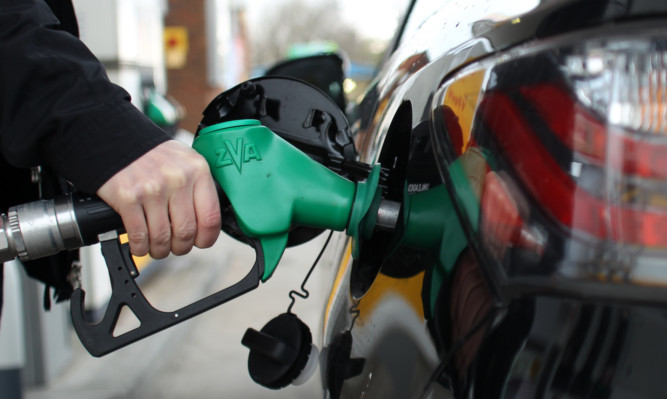The full force of the law should be available against oil executives who are found to have fixed prices, David Cameron has indicated.
The Prime Minister said he was “hugely concerned” about news of a European Commission investigation into oil companies BP and Royal Dutch Shell.
He said the Government was looking at ways of extending criminal law to cover alleged price-fixing activities in the energy sector.
The intervention came after the Commission carried out raids over claims that firms “colluded in reporting distorted prices to a price reporting agency to manipulate the published prices for a number of oil and biofuel products”.
It suggested the alleged price fixing, which may have been going on since 2002, could have had a “huge impact” on the cost of fuel at the pumps.
Speaking to reporters on his trip to the US on Wednesday, Mr Cameron said: “The first thing is, these are hugely concerning allegations and if true very, very serious.
“The Office of Fair Trading (OFT) is involved in this investigation as I understand it but we have to get to the bottom of what happened first before I think we can pass judgment on the way regulators have worked in the UK.
“But it is hugely concerning. An investigation is under way.”
Mr Cameron initially said that offences created in the Financial Services Act 2012, intended to prevent a repeat of the Libor scandal, could be applicable in this situation.
However, Downing Street later admitted he had been wrongly briefed and that was not the case.
“It is totally unacceptable for firms to fix prices and force consumers to pay more,” he said in a clarified quote.
“That is why we are looking at how to extend this criminal offence to the energy sector to make sure that those who manipulate benchmark prices feel the full force of the law.”
Earlier, Tory backbencher Robert Halfon, who has led a campaign calling for an investigation into alleged cartels and market manipulation in the oil market for the past three years, said there must be a full inquiry.
“The Government needs to say, anyone caught doing this, there should be prison for price fixing and there should be huge multi-million-pound fines on any oil company found guilty and that money should be passed back to the motorist,” he said.
Mr Halfon also condemned an OFT inquiry into petrol prices as “limp-wristed and lettuce-like”.
He said despite the Commons unanimously calling for a thorough probe into petrol pricing, the regulator had failed to spot any of the allegations currently under review.
The OFT ruled out a full investigation into claims of petrol price fixing four months ago after finding that competition in the sector was “working well” and there was “very limited evidence” that pump prices rise quickly when the wholesale price goes up but fall more slowly when it drops.
Energy Secretary Ed Davey defended the OFT as an “independent body, a strong body”, which has powers to determine its own investigations.
In a statement on Tuesday night, the European Commission said the oil companies “may have prevented others from participating in the price assessment process, with a view to distorting published prices”.
It said that even small distortions of assessed prices could have a “huge impact on the prices of crude oil, refined oil products and biofuels purchases and sales, potentially harming final consumers”.
